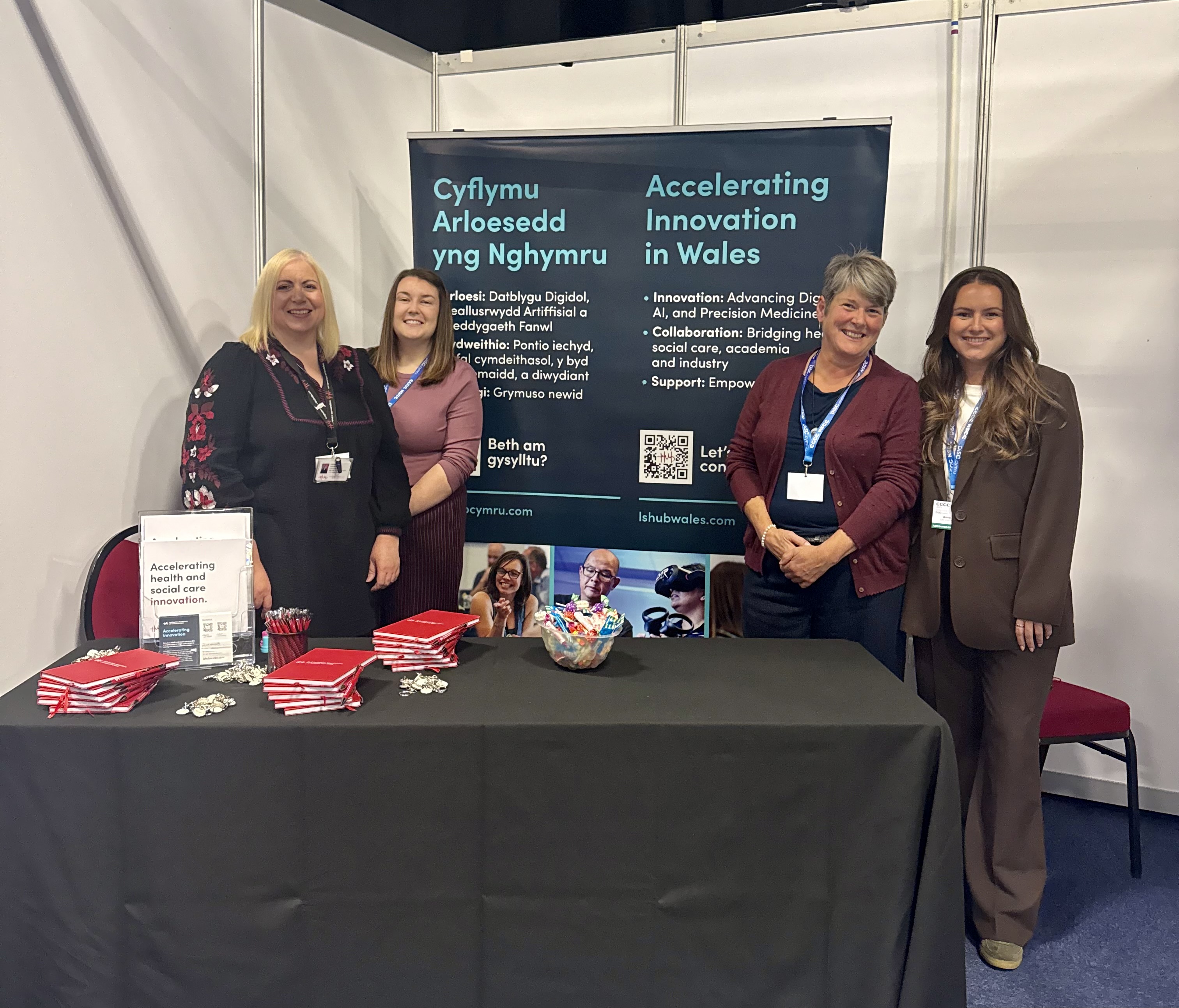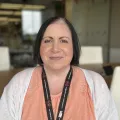We were delighted to attend and exhibit at the National Social Care Conference 2025 in Llandudno. A place where leaders, practitioners, academics, private, and third sector come together to share, challenge and inspire.

Across two days, the event offered not just a showcase of innovation, but a genuine opportunity to reflect on the sector’s journey and its future direction. There were so many inspiring speakers, workshops and conversations which have left me feeling excited about the future of social care and the benefits that innovation can bring.
From the outset, the tone was set by Claire Marchant, Chair of ADSS Cymru, and Corporate Director of Social Services and Wellbeing, Bridgend County Borough Council. Claire’s opening captured the changes in social care across Wales over the past decade, the unprecedented times, and political and economic shifts on the horizon. Despite these challenges Claire reminded us that our greatest asset is our workforce, holding on to the values we share of compassion, dignity, and human connection, and embracing innovation that will make our sector strong, sustainable and fit for the future.
“Ambition needs people and partnerships that deliver outcomes, because integration must service people, not systems. Building constructive relationships and working tirelessly to move our sector forward. Because when we get people, and technology with purpose, we don’t just deliver services, we build a resilient, inclusive Wales, where everyone can live, care, and belong.”
Launch of the Digital in Social Care Cymru Framework
One of the standout moments, and key messaging throughout the conference was the launch of the Digital in Social Care (DiSC) Cymru Framework, led by Lindsey Phillips, Chief Digital Officer, Welsh Local Government Association. The framework is a national partnership designed to help social care organisations across Wales harness the power of digital, data, and technology to improve outcomes for people who use care and support services, their families, unpaid carers, and the workforce. Its four pillars – Big Change, Bright Ideas, Brilliant Basics, and Building Knowledge, provide a roadmap for collaboration and co-production that will be vital as the sector moves forward. The conversations around digital maturity, AI, and inclusive innovation highlighted that the goal isn’t just to digitise social care, but to humanise it.
Building a digitally ready workforce
The Social Care Wales workshop, led by Aimee Twinberrow and Stephanie Griffith, focused on the leadership skills needed for a digitally ready workforce. The recent Social Care Report showed that while 55% of staff felt confident supporting people with everyday digital tools, there are still key skills gaps in technical and AI understanding.
The workshop explored how to support innovation in social care, emphasising the need to understand the current landscape. The digital maturity assessment was highlighted as a practical step towards refining workforce skills. The publication of Social Care Wales digital maturity assessment tool, and AI guide, show progress, but also remind us that there’s still a way to go. As Stephanie noted, confidence dips when faced with more complex technology challenges, and AI remains an area where staff feel less assured. The message was clear, ongoing support and development are essential to empowering the workforce.
Empowering independence
I had the opportunity to present a workshop with Thomas Sauter, Clinical Lead Pharmacist, Cwm Taf Morgannwg University Health Board, and Olivia Howells, Grant Funding Specialist, Life Sciences Hub Wales. 50% of people don’t take their medicines as prescribed, leading to missed doses and health issues. At the workshop, we presented the project journey of the YourMeds and Pivotell devices implemented in Bridgend, designed to help users manage and take their medication correctly, stay independent, and remain at home for longer.
Showcasing some of the key outcomes for the project really resonated with people in the room. These included reduced hospital admissions, a decrease in domiciliary care hours, improved team efficiencies, increased medication adherence, and enhanced user wellbeing. We also highlighted that the project’s success relying on receiving continuous feedback from users, their families/unpaid carers and staff, creating a user-centred co-produced design and collaboration across stakeholders, including community pharmacies, health, social services, and the Telecare Alarm Receiving Centre. We emphasised that digital tools should enable people, not replace them.
Continuing to share knowledge of the project across Wales encourages discussion around how others may implement the use of medication devices within their own services. In Bridgend, the project is continuing to expand, working with other pathways such as Community Mental Health Services, highlighting the importance of partnerships with community pharmacies and other stakeholders. A collaborative approach is key. Working and aligning via integration between health and social care, academia, and industry in such a co-produced way, is proof that it’s possible – working collaboratively to improve lives and change outcomes.
Transforming training through Virtual Reality
I had the opportunity to deliver a second workshop supporting Azize Naji, CEO/Founder, Goggleminds, and Sheiladen Aquino, Clinical Lead Speech and Language Therapist, Cwm Taf Morgannwg University Health Board, showcasing the Virtual Reality training module for care home staff. This immersive simulation is more than just the use of virtual and immersive technology, it’s about people, and how we can provide better training for our social care workforce.
Staff shortages, training gaps, and digital hesitation are real barriers, but through co-design with care home staff, therapy assistants, and health professionals, the team created a tool that is clinically grounded and applicable in real life. Recognising that many staff are apprehensive about technology, the programme focused on delivering training that’s not intimidating but instead bridges the gap between knowledge and practical application. By using simulation-based training, staff can practice realistic scenarios, such as responding to virtual swallow assessments, or managing medication errors, helping staff build confidence and competence.
The collaborative approach across industry, health, academia, and local authorities was key to driving the programme forward. Staff reported increased confidence, reduced stress, and greater readiness for integrated remote assessments. We also shared future exciting plans for expansion - rolling out the model across Bridgend and other areas, such as falls prevention, and other disciplines. The workshop demonstrated that simulation-based training can bridge the gap between knowledge and real-life application, making learning safer, more realistic and emotionally engaging.
Looking to the future
As the conference drew to a close, it was evident that collaboration, leadership, and partnership are key to digital transformation. As Dawn Bowden, Deputy Minister for Children and Social Care, powerfully stated, “ambition cannot be achieved in isolation.” Every day, the actions and passion of the workforce is shaping the services of social care in Wales.
The reflections from NSCC25 serve as a reminder that the future of social care is shaped not only by policy or technology, but by the passion, commitment and creativity of those who work within it. This was evident throughout the conference, from the launch of the DiSC Cymru Framework and the development of digital skills to the implementation of innovative tools such as medication dispensers, VR Training, and many others.
As we look ahead, the challenge is to continue building constructive relationships and embracing opportunities to connect, inspire, and be brave to make positive changes that improve the future for our workforce and the people in our communities. The journey is ongoing, but the conference has shown that with courage and collaboration, social care in Wales can move forward with purpose, building a system that truly reflect the values we hold.

